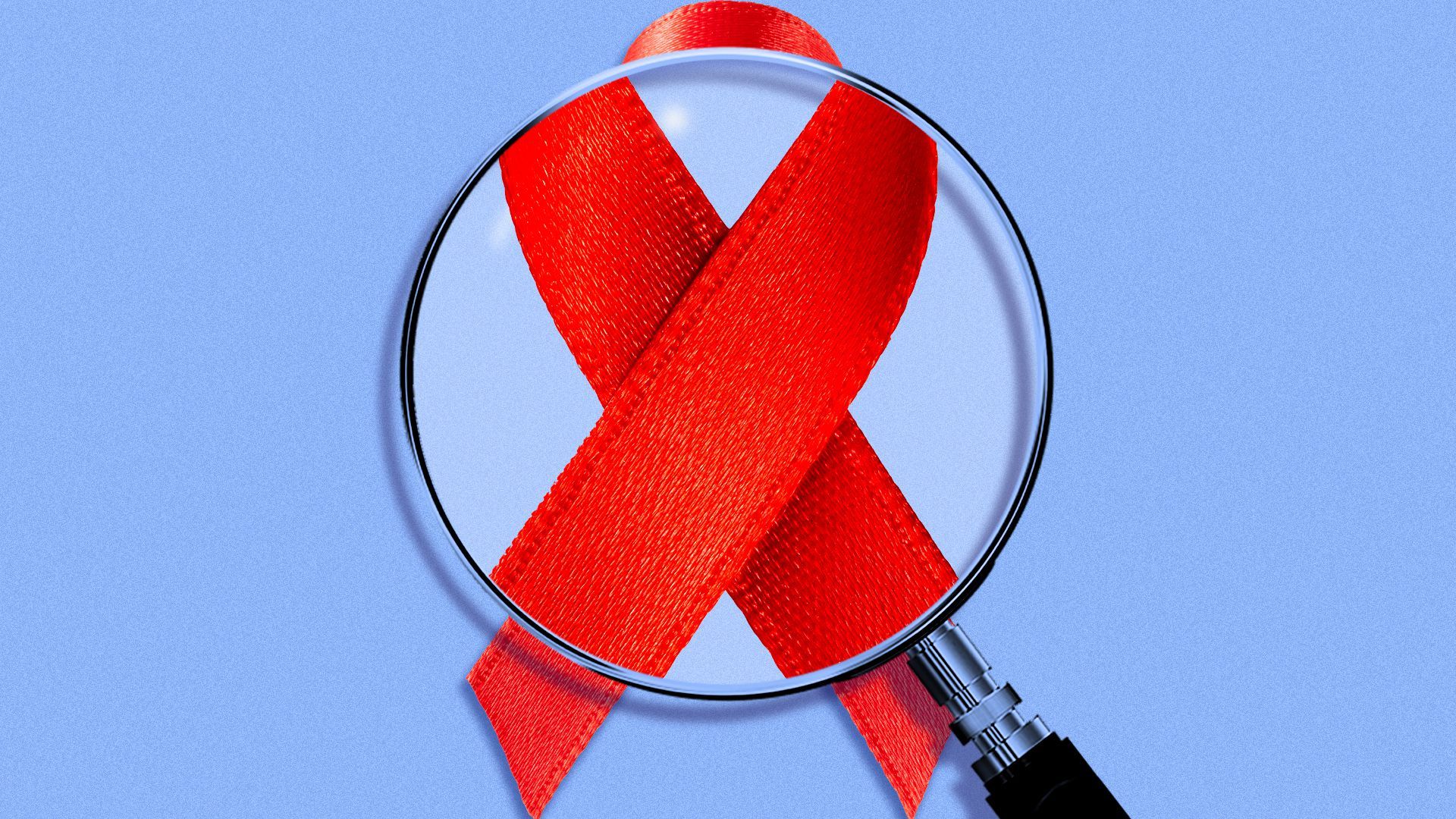35-year-old stool, blood samples reap new HIV discovery
Add Axios as your preferred source to
see more of our stories on Google.

Illustration: Sarah Grillo/Axios
A tranche of blood and stool samples that have been in storage since 1984 are now helping scientists learn more about HIV and AIDS.
Why it matters: Applying modern science to these decades-old samples offers a glimpse back in time into the role gut microbes may have played in the early spread of HIV and AIDS.
Driving the news: Men who contracted HIV back in the 1980s appear to have had a different microbiome than their counterparts who remained HIV-negative, according to a study published Thursday in the journal Microbiome.
“We weren’t looking at the microbiome back then, trust me. It wasn’t even in our lexicon,” said Charles Rinaldo, a co-senior author of the study and a professor of infectious diseases at the University of Pittsburgh.
Details: In 1983, the National Institutes of Health funded what was called the Multicenter AIDS Cohort Study in four cities, including Pittsburgh, in the race to understand the then-mysterious illness.
- Researchers at Pitt collected samples of blood, throat washings, urine, semen and stool every six months from a group of gay men who did not have AIDS at the start of the study.
- Once researchers discovered HIV was responsible for the development of AIDS, the researchers at Pitt stopped collecting the samples. But instead of throwing the samples away, the team stored them in a biorepository.
- "Let me tell you, there was some pressure to throw this stuff out," Rinaldo said. "It costs a lot of money to keep these for 35 years ... I was one of the people that said 'No way.'"
State of play: Fast forward to 2017, Rinaldo was discussing the biorepository with colleague Shyamal Peddada, the then-chairman of the biostatistics department, when they realized the potential for studying the microbiome's impact on HIV.
- "We said, 'What the heck. Let's look at the microbiome. There could be something important here,'" Rinaldo said.
- They obtained the preserved blood and stool samples from 265 participants who did not have HIV when they enrolled in the study, including 109 who later contracted the virus in that first year.
- The resulting study ultimately found men who had sex with men who contracted HIV had more pro-inflammatory gut microbes than their counterparts who remained HIV-negative.
- They also found men who progressed to AIDS the most quickly had the least favorable gut biome.
The bottom line: "To our knowledge, this is the first time we've been able to address what predisposed men who had sex with men to become infected with HIV and beyond that developing AIDS," Rinaldo said.
